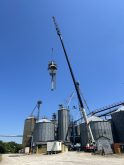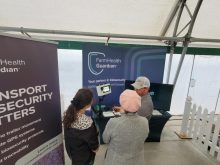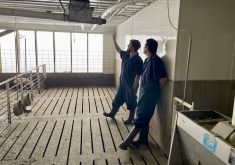Ensuring new products work at the farm level is critical for making business ventures profitable for both investors and clients, says a spokesperson from AgLaunch, a Tennessee-based investment company focused on growing agricultural start-ups.
More specifically, they say, that means engaging networks of farmers both prior to and during the development of a new agricultural product or technology – not just during test trials.
The message was conveyed by Pete Nelson, president of AgLaunch, during a keynote presentation at the AGRI-Tech Venture forum in Toronto on May 10. The event was both a networking and communication opportunity for food-focused corporate venture capitalists to discuss their approaches to new product investment.
Read Also

Ontario’s agri-food sector sets sights on future with Agri-Food 2050 initiative
The first-ever Agri Food 2050, a one-day industry event dedicated to envisioning the future of food and farming in Ontario,…
Out of four keynote speakers and two panel sessions, Nelson was perhaps one of two individuals to argue farmer expertise and peer networks are “fundamental” to the tech-development process from beginning to end. Indeed, his company maintains a large and diverse network of farmers to do just that.
“Everything starts with the farmer,” said Nelson. “There’s a high rate of companies that should be successful, but they’re not. The [tech-innovation] system isn’t set-up to work in the ag-sector.”
Nelson explains by noting people involved in technology and product development have, generally speaking, “a poor understanding of agricultural systems.” He said there is a misalignment between corporate drivers and farmer needs, where products can’t be utilized as envisioned because they don’t understand the industry at the ground level.
As a case study, Nelson cites Case IH’s driverless tractors.
“It’s essentially a really big tractor without a cab on it. You’re not going to be getting benefits on soil compaction, greater mobility or things other farmers are concerned about,” he said. “It shows you, if you’re thinking about automation, you’re just going to be fundamentally thinking about that differently than if we had our farmer hat on.”
The trick, he said, is not to attract the seven per cent of early-adopter farmers to your idea, but to reach the other 93 per cent who are much more entrenched in current methods. For that, peer-to-peer networks are the only answer.
An example of how successful a product can be – if farmers are consulted directly – is the “irrigation recommendation solution for row crops” developed by an Argentinian company called Kilimo. That company, Nelson said, spent an exorbitant amount of time meeting with farmers from across the South American country before offering their first product.
“They are currently close to 10 per cent of irrigated acreage in Argentina and we are helping them expand into the U.S,” said Nelson in a later email. “This includes a strong role with our farmer network […] as well as analysis of ease of use and ability to incorporate the system into US farming practices.”
AgLaunch’s first priority is to improve efficiencies for existing commodity farms. However, they also invest in start-ups focused on increasing farm product value and diversity, such as those looking at commercializing novel crops, or with dual urban and rural agricultural strategies.
“We view agri-tech as a means to an end,” saids Nelson.
“The end game is a diversified, robust farm economy that farmers have options, new markets, new crops, etc. Technology helps become more efficient/profitable today to lay the ground work for scaling a range of next generation opportunities.”















